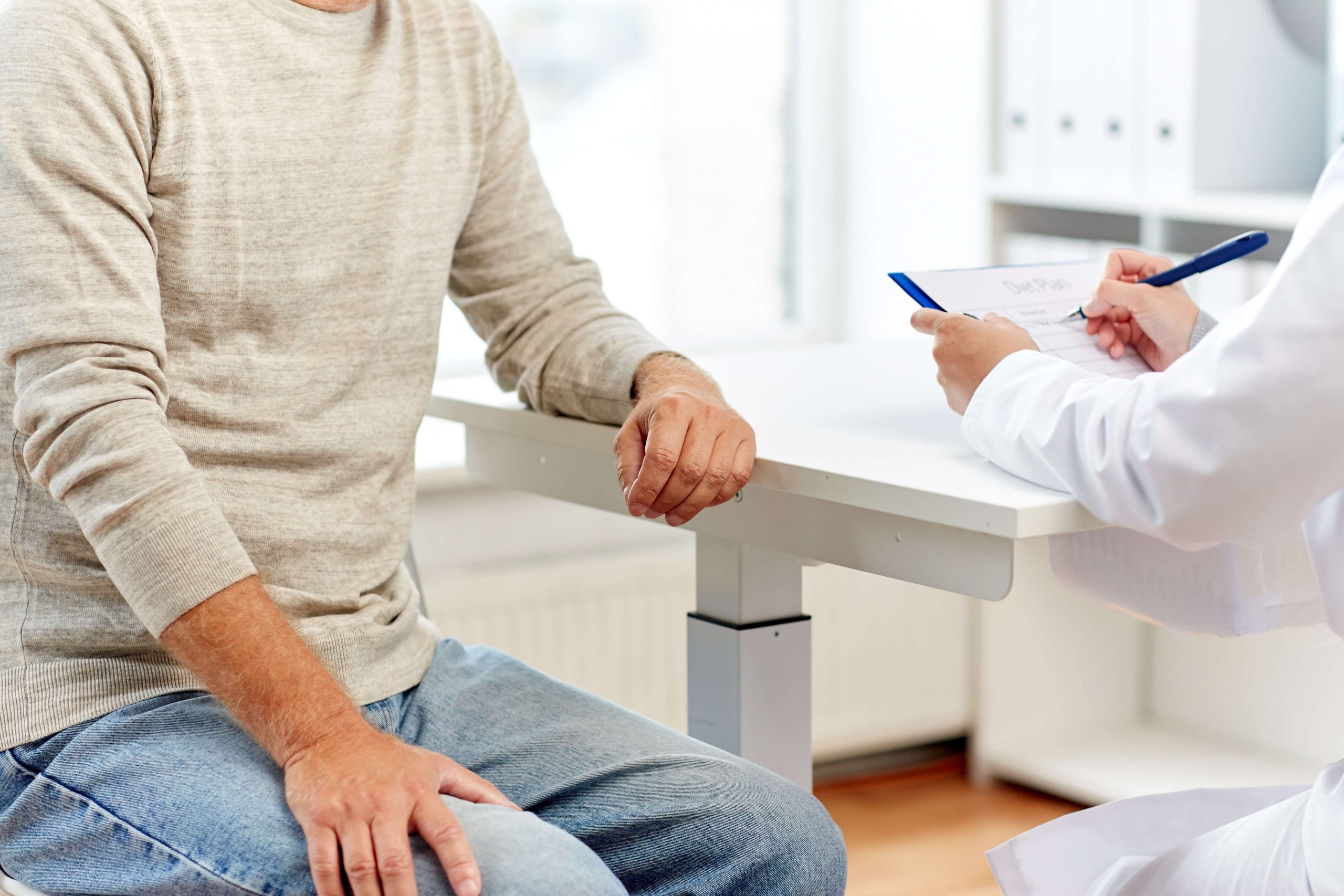Panic Disorder Treatment Centers in Los Angeles
A panic disorder causes sudden and unexpected attacks of severe anxiety, accompanied by an array of disabling, uncontrollable physical symptoms. These attacks peak quickly, are highly intense, and may not subside until the sufferer is able to return home or to another safe and familiar environment. Panic attacks are a type of anxiety disorder. Panic Disorder may appear in families, based on a genetic basis. Panic attacks are also associated with a history of psychological trauma, and attacks may be triggered specifically by factors related to previous trauma. Panic attacks can also occur with seemingly no specific trigger. Specific medical conditions can be associated with panic attacks, including mitral valve prolapse, thyroid problems, and hypoglycemia. Persons taking cocaine or methamphetamine, or over-the-counter addictive drugs, or high levels of caffeine have an increased risk of having panic attacks. Stress is often a precipitating factor for panic attacks. Panic Disorder often arises during transitional periods in life such as graduating from college, changing jobs, divorce, or even marriage and birth of a child. A history of physical or sexual abuse or psychological trauma is associated with panic attacks.
Types of Panic Disorders
Panic disorder is diagnosed in one of two forms: with or without agoraphobia. Agoraphobia is an intense fear of unfamiliar places and unpredictable environments. It is such a serious condition that sufferers are often unable to leave their homes without experiencing panic symptoms, and they may choose to stay inside continuously to protect themselves from their anxiety. Panic attacks are a frequent cause of agoraphobia, and when panic disorder with agoraphobia develops (as it will between one-third and one-half the time), it means the fear of panic attacks has taken over an individual’s life. Panic disorder without agoraphobia is a less severe form of the disorder. But its symptoms are persistent and powerful, and people who suffer from panic disorder without agoraphobia will still go to extraordinary lengths to avoid situations that might trigger a panic attack.
Treatment for Panic Disorders
Panic disorders can be be treated! Research shows that the most successful treatment for panic disorder is a combination of medication and cognitive-behavioral therapy (CBT). Many clinicians recommend CBT as the first-line treatment, with medication added if necessary to make the patient comfortable enough to participate in CBT. Once treated, panic disorder doesn’t lead to any permanent complications. Without treatment, panic disorder can have very serious consequences. The immediate danger with panic disorder is that it can often lead to a phobia.
Although, feeling fear or panic is not a disorder in itself. There are many ways to prevent or stop anxious feelings before they worsen and turn into a panic attack. If you are suffering from a situational panic attack or feel anxious because of a fearful situation, the best thing to do is to walk away from your feared situation. Try performing relaxation techniques, such as taking deep breaths. Changing your diet and sleeping habits can also help you manage anxiety and lessen panic attacks that are brought about by stress or environmental factors.
Therapies for Panic Disorders
Unexpected and repeated panic attacks that occur under normal circumstances require specialized treatment to control them. Fortunately, panic disorders are not usually difficult to treat. In general, the available treatment options for panic disorders include attending counseling sessions with a psychiatrist or a support group and taking prescribed medications as indicated by your doctor.
Cognitive Behavioral Therapy Treatment for Panic Disorders
Cognitive-behavioral therapy (CBT) is one of the most common treatments for panic disorders. During CBT, the patient is taught how to change their perspective about their particular fears. During the behavioral therapy, the patient learns how to react to apprehensive or anxiety-provoking situations.
Exposure Therapy for Treating Panic Disorders
Exposure-based therapy is a form of CBT that is meant to reduce anxiety and fear responses of people to certain situations. During exposure therapy, the patient is gradually and repeatedly exposed to the feared object, place or situation. The therapist may use pictures or videos to represent the patient’s fear until a face-to-face encounter can occur. The therapist can accompany the patient during the personal encounter with the feared object, place or situation.
Acceptance and commitment therapy (ACT) for treating Panic Disorders
Aside from CBT and exposure therapy, other complementary therapy and treatment methods that can actually help people with panic disorder include Acceptance and commitment therapy (ACT). This therapy teaches patients to live in the moment and view things without judgment.
Prescription medication and Over-the-Counter Medications
Like other psychological conditions, panic disorder can be controlled with prescription medications. Antidepressants are often used to reduce the severity of panic attacks and improve the patient’s overall quality of life. Some of the most commonly used antidepressants include:
- SSRIs or selective serotonin reuptake inhibitors, which block the reabsorption of serotonin by the other nerve cells in the brain
- SNRIs or serotonin norepinephrine reuptake inhibitors
- Benzodiazepines, which are often used as a short-term medication to relieve anxiety
- Tricyclic antidepressants, which are sometimes used as a substitute for benzodiazepines
All these medications have side effects, some of which include sleepiness, insomnia, weight gain, abdominal stress, blurred vision, dry mouth, headache, and sexual dysfunction. Consult your doctor to get more detailed information about these medications.


Overland IOP is a facility that demonstrates personalized care to every individual that arrives here, as every person is different and has unique requirements and objectives they want to meet. Our team, at Overland IOP, offers services that range from mental health counseling to rehabilitative services for various and complex addictions. Navigating the world of recovery and healing should not be a singular undertaking, especially when such beneficial resources such as ours exist and are here to help. With the new California mental health law, quality care and support have become significantly more accessible to those that are in urgent need of mental health aid, and Overland IOP is undoubtedly one of the best facilities in the state when it comes to providing these crucial services. Overland Intensive Outpatient is ready to provide both in-person and virtual care (Telehealth services). Help is only one call away! We work 24/7.
Published: March 24, 2020
Last Updated: March 24, 2021


Published: April 06, 2024
Understanding Autism Awareness Month
April marks Autism Awareness Month, a time dedicated to increasing understanding and acceptance of autism spectrum disorder (ASD) and promoting support for individuals living with autism. As we commemorate Autism Awareness Month, it’s essential to highlight the intersectionality between autism and mental health. This article delves into the significance of Autism Awareness Month in raising […]
Read more

Published: April 03, 2024
IOP Treatment Plan: Structure & Examples
A well-structured IOP treatment plan often includes a comprehensive assessment to tailor the program to the individual’s needs, setting specific, measurable goals. It typically involves a combination of individual therapy, group therapy, and possibly family therapy sessions. The plan might also incorporate psychoeducational sessions to teach coping skills, relapse prevention strategies, and manage triggers. Additionally, […]
Read more

Published: March 30, 2024
Outpatient Treatment in Los Angeles: Navigating the Path to Wellness
In the bustling heart of Los Angeles, Overland IOP &PHP stands as a beacon of hope for individuals grappling with mental health issues and addiction. This outpatient treatment center embodies a commitment to compassionate, comprehensive care, tailored to fit the unique needs of each individual. Unlike inpatient facilities, Overland IOP & PHP offers a flexible […]
Read more
